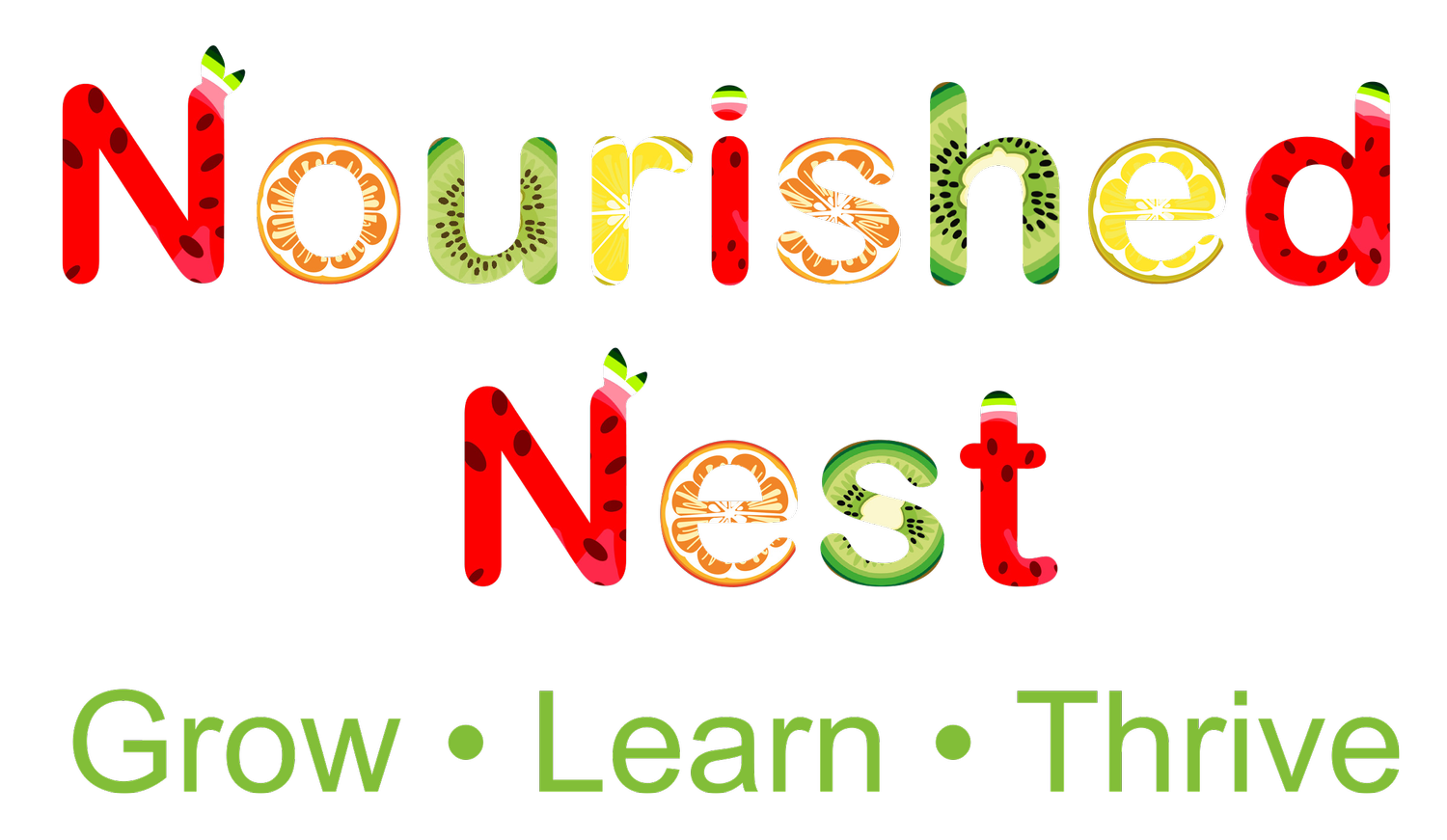Nutrients to support your baby during the first 1000 days
Part 2
The importance of maternal nutrition in the first 1000 days of a child's life can influence your child’s development.
This starts during pregnancy to their second birthday. It is an essential period when their brain, body, metabolism and immune system grow and develops.
Good nutrition is essential for physical development, social development, emotional, and behavioural development, cognitive development and a healthy immune system.
There are key nutrients that I have included in these 3 recipe suggestions below for pregnancy and postnatal recovery.
Pregnancy – choline, carotenoids, iodine, omega 3, zinc, iron & folate. All are essential for neurodevelopment and cognitive development and influence your child's brain structure, function and processing speed.
Vitamin D- is essential for skeletal development. You are recommended to supplement during pregnancy and postnatal recovery.
Postnatal Recovery - must include all nutrients mentioned above, because you are often depleted after birth, and it’s essential to look after your health, but if you choose to breastfeed you also need to eat foods rich in B vitamins (B12 & B6) and Vitamin A. If you are depleted then so will your milk. Your milk is the only source of nutrients to fuel their growth and development.
Remember their brain in the early years works super hard, developing motor functions such as balance, coordination and posture. The baby is also learning to create and retrieve memories.
If you can’t breastfeed or wish not to, the formula contains most of the nutrients you find in breast milk.
Importance of Fish & Seafood
Remember if you can please continue to eat fish & seafood during and after pregnancy.
Official dietary advice in the UK for pregnant women has been to limit seafood intake.
There is evidence that avoiding or limiting fish and seafood intake significantly impairs children's cognitive, behavioural and social development.
Typical modern diets are now deficient in vital omega-3 fats, therefore we are eating an excess of pro-inflammatory omega-6 fats, and lack other key brain nutrients found in fish and seafood. Evidence now shows that this is making a contribution to the current worldwide mental health epidemic.
⭐Recipes⭐
Protein Packed Granola
100g Oats
2 tbsp Quinoa
70g Mixed seeds (linseeds, sunflower seeds, pumpkin seeds, sesame)
90g Mixed nuts (almonds, walnuts, Brazil nuts) roughly chopped
1/2 tsp Olive Oil
1/2 tsp Cinnamon
3-4 Dates, stored into a paste with 1 tbsp of water or maple syrup or honey
2tsp Ground ginger
45g Dried fruit, figs, apricots, prunes(optional if keeping sugar down)
Method
Preheat the oven to 150oC
In a large bowl mix the oats, quinoa, seeds and nuts.
In a small bowl mix the olive oil, cinnamon, ginger and date paste. Pour over the dry ingredients and mix with your hands so evenly coated.
Thinly spread the mix over two baking trays lined with baking paper. Bake for 10 minutes. Mix well and bake for another 10 minutes.
Allow to cool, add the dried fruits and place in an airtight container.
Tastes great served with yoghurt and mixed berries. Make a large batch, it can last for 2 weeks.
Roasted Vegetable and Feta Frittata
2-3 mushrooms, chopped
2-3 small tomatoes, chopped
Half courgette, diced
1 small sweet potato, peeled and diced
1 carrot, peeled and diced
Half a red or yellow pepper, diced
3-4 Asparagus spears
1 Handful of fresh spinach chopped
1tbsp Olive oil
6 Eggs
100g Plain Yoghurts
90g Feta
Method
Preheat the oven to 180oC
You could roast the vegetables in the tray you are making the frittata.
Line the tray with baking paper, place the diced mushrooms, tomatoes, courgette, sweet potatoes, carrots and peppers, and tumble in olive oil. Roast the vegetables for 10-12 minutes until the sweet potatoes are starting to soften.
Stir the eggs, yoghurt and feta and seasoning. Once the vegetables are roasted pour over the egg mix you may want to sprinkle extra feta over the top. Then bake for 20-25 minutes, when the top starts to brown and the centre is firm.
Cut the frittata into large squares, freeze some for a snack or lunch and enjoy the rest with a salad.
Salmon poke bowl quinoa, lentils and chickpeas
1 tin Chickpeas
200g Cooked lentils
100g Cooked quinoa
1 Courgette, diced
1/2 Cauliflower, chopped
1/2 Butternut or 1-2 small sweet potato, peeled & diced
1 tbsp Olive oil
1tsp Turmeric
1tsp Garam masala
Seasoning
4 Salmon fillets
3-4 Small vine ripe tomatoes
1/2 Pomegranate
100g Sweetcorn, frozen or on the cob
6-8 Asparagus, steamed
Kale
Dressing
4tbsp Plain yoghurt
1tbsp Tahini
1tbsp Olive oil
Juice of 1/2 lemon
1tsp Dijon mustard
1tsp Honey
1tsp Garam masala or curry powder
Method
Preheat the oven to 180oC
Roasted Vegetables, add diced butternut/sweet potato, chickpeas, courgette and florets of cauliflower to a roasting tin, add 1tbsp of olive oil, 1/2 tsp turmeric and 1/2 garam masala to the vegetables and tumble so well coated. Roast for 20 minutes or until sweet potato is soft.
For the salmon, Marinate in 1 tbsp olive oil, lemon, 1/2 tsp garam masala and 1/2 tsp turmeric.
Cook in the oven or air fryer 12-15 minutes
For the Tahini and Yogurt Dressing mix all the yoghurt, tahini, oil, lemon, mustard honey and spices together.
To make the salad, tumble the roasted vegetables with the cooked quinoa, lentils, and sweetcorn, add 2-3 tbsp to your dish, add the kale, tomatoes and asparagus to the dish. Either keep them separate like a poke bowl or mix them together. Add the salmon and dressing.
Enjoy😊
References
Nutritional Gaps and Supplementation in the First 1000 Days
The first 1000 days: A critical period of nutritional opportunity and vulnerability

